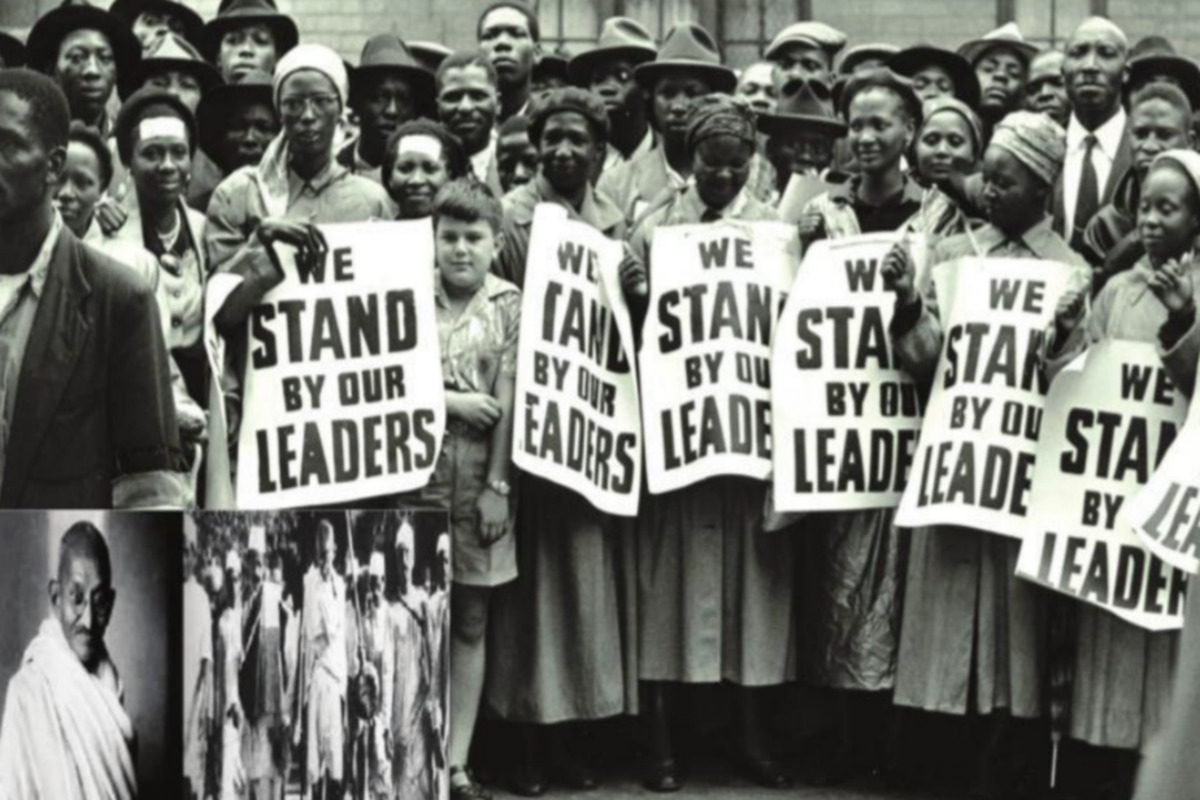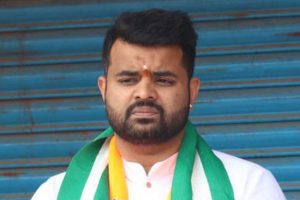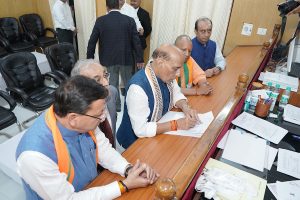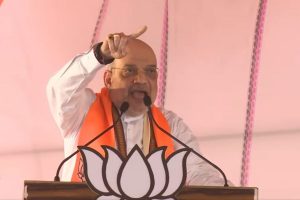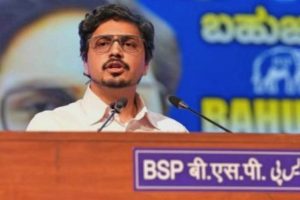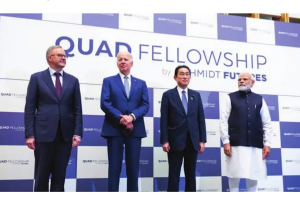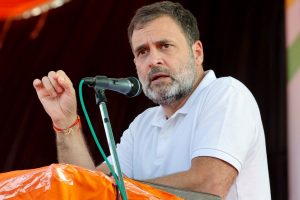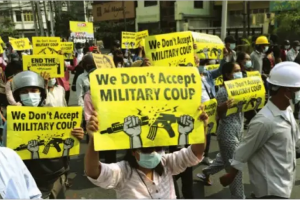Much before the re- cent Hamas attack and the subsequent pulping of Gaza Strip by a relentless Israeli onslaught, Palestinians had been using the term ‘apartheid’ to describe their situation. The former Secretary-Gen- eral of United Nations, Ban Ki- Moon and the former UN Hu- man Rights Commissioner, Mary Robinson, concurred with the ‘ever growing evidence’ that they found on a visit to suggest that ‘the situation meets the international legal definition of apartheid’ and they ‘heard no detailed rebuttal of the evidence of apartheid.’ Even the former head of the Israeli spy-agency, Mossad, Tamir Pardo who served directly under Benjamin Netanyahu (2011-2016) described the situa- tion as ‘total apartheid’. Beyond individual opin- ions, when the Palestinian situa- tion is evaluated from the prism of three essential elements, as set out in the International Con- vention on the suppression and punishment of the crime of apartheid (1973) and the Rome Statute of the International Criminal Court (1998) to ascer- tain status, Palestinian fits the definition of apartheid. The first test is whether intent to maintain domination by one racial group over another persists. Secondly, if a context of sys- tematic oppression by the dom- inant group over the margin- alised group prevails. Thirdly, if inhumane acts such as ‘forcible transfer’ and ‘expropriation of landed prop- erty’, occur. On all three condi- tionalities and with the current condition of hapless Palestini- ans in Gaza Strip (and estimated 25,000 deaths, with two thirds of them being women and chil- dren), it is a case of apartheid, and far more. Even Mahatma Gandhi (who had his own tryst with apartheid in South Africa) who sympathized with the Jews owing to the unprecedented pain and persecution they faced at the hands of Nazis, was able to nuance his views on the Israel-Palestine issue with the comment, “Palestine belongs to the Arabs in the same sense that England belongs to the English, and France to the French.” Clearly, the undeniable misery inflicted on the Jews could not jus- tify the usurpation of land that had belonged to native Arabs for thousan- ds of years of re- corded history. Even prior to the Hamas attack on 7 October, the maximization of land for Jews with brazen settlements and the consequ- ential minimiza- tion and diminishment of resources for the Palestinians, already closeted in densely pop- ulated ghettos, was ongoing. In many ways, it seemed to repli- cate the infamous (now dis- banded) apartheid system of South Africa, where native peo- ple were oppressed in their own homeland with the despicable practice of forced racial segre- gation. Today the nation that faced and survived apartheid i.e., South Africa, is at the forefront to defend Palestine, when many other nations remain mealy- mouthed in their approach. South Africa has petitioned the International Court of Jus- tice (ICJ) to investigate if what Israel has done to Palestinians tantamount to genocide. Beyo- nd paying an ode to its own dark past, there is an element of reciprocal dignity in standing up for each other, as the Pales- tinian leadership had stood up for South Africa’s own fight against apartheid, when the ‘West’ had conveniently looked the other way. Images of a freed Nelson Mandela wearing the famous Palestinian keffiyeh (scarf) at a summit or later when he fa- mously said, “We know too well that our freedom is incomplete without the freedom of Pales- tinians”, exemplify the spirit of camaraderie and empathy against indignities of ap- artheid. Importantly, South Africa’s sup- port to the Pales- tine issue is nua- nced with its open denunciation of the Hamas’ terror act, which trig- gered the latest war, and after it had offered sup- port and condo- lences to Israel for the 7 October attack. However, it is the grossly disproportionate, misdirected and seemingly intentional ‘revenge’ against a people i.e., Palestinians, as opposed to targeting specific elements of the Hamas group, that has shocked the conscience of the world. Years back, Mandela had defended his support for the Palestinian cause (then conflat- ing it to Yasser Arafat’s PLO) whilst ensuring the rights of Israelis, “The support for Yasser Arafat in his struggle does not mean that the ANC has ever doubted the right of Israel to exist as a state, legally. We have stood quite openly and firmly for the right of that state to exist within secure bor- ders. But, of course … We care- fully define what we mean by secure borders. We do not mean that Israel has the right to retain the terri- tories they conquered from the Arab world, like the Gaza Strip, the Golan Heights and the West Bank. We don’t agree with that. Those territories should be returned to the Arab people.” Meanwhile the ‘West’ still does not accept the differentia- tion between the Palestinians in general, and those within them who could belong to the Hamas ~ they readily and very conveniently conflate the two, in order to justify the Israeli reaction. Today, the onerous task of honouring Mandela’s position on the cause of beleaguered Palestinians falls on his fellow- African National Congress (orig- inally a liberation movement founded by Mandela as part of the anti-apartheid struggle) member and President of South Africa, Cyril Ramaphosa. To the chagrin of Israel, US, and other Western powers, Ramaphosa beamingly stated, “I have never felt as proud as I felt today when our legal team was arguing our case in The Hague”. Even if the South African petition was to get a favourable verdict from the ICJ, it would remain practically unimple- mentable given the nature of the process and the Israeli track record of defiance (Israel re- mains the single most sanc- tioned nation in the history of United Nations resolutions). The fact that South Africa is not one of the Organisation of Islamic Countries (OIC) and has not taken a stand owing to any compulsion of co-religiosity, but as per its own conscience, com- mitment and values when it could have ignored these as done by most countries, makes its position substantial, moral, and very brave. While the Israeli pummel- ing of Gaza Strip does not seem any closer to an end, at least the South African move has spurred and triggered debate on matters of humanity, basic human dig- nity, and apartheid-like situa- tions that many endure silently, when some who could stand up and make themselves count choose platitudinous ambigui- ties, hypocrisy and deafening silence.
The writer is Lt Gen PVSM, AVSM (Retd), and former Lt Governor of Andaman & Nicobar Islands and Puducherry

